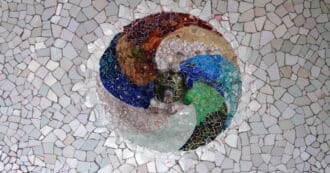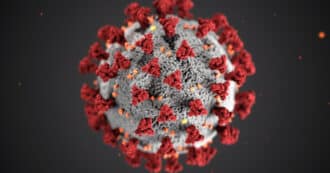The Paradox of Noetic Science
By Aryeh Ronay – “Noetic Science” appears to be a paradoxical term. The term “noetic” refers to our subjective experience, while science is the study of objective phenomenon. Nevertheless, noetic science exists to explore the subjective world, to understand and gain knowledge about the subtle reality of consciousness.
What is Consciousness?
Dr. Cassandra Vieten, former director of research at the Institute of Noetic Sciences (IONS) describes consciousness in the following ways:
On one level, consciousness is simply awareness — how people perceive, interpret, and direct their attention and intention toward their environment. Collective consciousness is how a group (an institution, a society, a species) perceives, attends to, and makes meaning of the world. In some formulations, consciousness goes beyond awareness and includes everything we perceive and experience, even at the subconscious level. In its largest, most universal sense, consciousness has been referred to as a “milieu of potential,” the shared ground of being from which all experiences and phenomena arise and eventually return.
In other words, consciousness can exist at multiple levels: The personal, collective, subconscious and universal. Studying consciousness is no simple matter, but the Institute of Noetic Sciences is no simple organization.
The Institute of Noetic Sciences
IONS was founded by Dr. Edgar Mitchell, the 6th person to walk on the moon. As we was traveling back to Earth, “he was enveloped by a profound sense of universal connectedness” and he described the following:
I realized that the story of ourselves as told by science—our cosmology, our religion—was incomplete and likely flawed. I recognized that the Newtonian idea of separate, independent, discrete things in the universe wasn’t a fully accurate description. What was needed was a new story of who we are and what we are capable of becoming.
This led Dr. Mitchell to develop IONS “to reveal the interconnected nature of reality through scientific exploration and personal discovery.” Experiments conducted by IONS focus on topics such as how consciousness can affect the physical world, how minds can gain information from beyond the physical world and the powers of meditation.
Noetic Ecology
Noetic ecology is a field of Noetic science focused on exploring and enhancing the relationship between humanity and nature. The Organization for Noetic Ecology (ONE) explains their work in the following manner:
Noetic ecology is a ‘practice’, a ‘field’ and a ‘movement’.
As a dedicated practice, it is essentially the art of noticing: the how and what we pay attention to in nature. It is a fundamental appreciation that the quality of attention determines not only the quality of our experience (and the benefits derived from our nature interactions), but is capable of profoundly changing the world we perceive.
As an open field of learning, it applies transdisciplinary approaches to rigorously explore the full spectrum of human-nature experience. Utilising scholarly inquiry, it draws on cross-cultural science and wisdom traditions to further understandings of interconnectedness and how it can best guide and support regenerative living.
As an inspired philosophical movement, noetic ecology invites ‘active hope’ through ‘delicate activism’: cultivating receptivity, awareness and compassion as a basis for authentic action. It provides practices that allow us to see the world with new eyes and to take a fresh view of realities different to our own. It focuses on what inspires us and what we can tangibly do in our lives. It invites us to utilise the power of consciousness – through intention and attention – to generate deep connection with nature, people, self and our greater source of purpose. As agents of change, it requires us to embody what we wish to see – from the inside out.
Noetic Ecology is about reconnecting with nature in the world and in ourselves. Bridging the inner and outer worlds, noetic ecology facilitates inner and outer healing.
Noetic Scientists in Popular Culture
Noetic Science gained popularity in 2009 when it was featured in Dan Brown’s blockbuster novel, The Lost Symbol.
NPR wrote about how the President of IONS, Marilyn Schlitz, found out about The Lost Symbol: “‘Waking up one morning to find yourself a fictional character in a best-selling novel has taken a little adjusting to,’ she says, laughing.”
Noetic Science Investigates Life After Death
Schlitz emphasized that the book exaggerated the in saying that IONS had found conclusive scientific proof for the power of prayer, life after death, etc. Nevertheless, she pointed out that those are the very crucial questions being investigated at IONS.
Noetic Science and Religion
Religious Arguments AGAINST Noetic Sciences
There is criticism of the noetic sciences on a few Christian websites. For example, BibleAsk comments that “the Bible teaches that truth should be based and tested by the law of God and the testimony of the prophets and not by fleeting feelings and impressions” (Isaiah 8:20).
Similarly, CompellingTruth critiques the Noetic sciences in the following manner:
Noetic science delves into the areas of telepathy, telekinesis, precognition, and self-healing. In spite of the exhaustive studies into these areas, where they have been found to be unscientific at best and outright fiction at worst, people continue to seek knowledge through them. This is little more than the ancient practice of Gnosticism, which is seeking a higher knowledge, not from the Bible, but acquired on some mystical higher plane of existence.
These websites criticize the noetic sciences for seeking truth through the subjective experiences of consciousness instead of through the Bible and the prophets.
One could argue in response that the Bible and prophets accessed that very same “mystical higher plane of existence” that Noetic sciences are directed towards. The question would then be, are we contemporaries able to access those same “mystical higher planes” or not?
Religious Argument FOR Noetic Sciences
On IONS page about The Future of Meditation Research Project, they quote from the Dalai Lama about the power for meditation to transform consciousness:
Until recently, scientists believed that after adolescence, the hardware of the human brain becomes relatively unchangeable. But new discoveries in neurobiology have uncovered a remarkable potential for changeability in the human brain even in adults as old as I am. At the Mind and Life Conference in Dharamsala in 2004, I learned of the growing subdiscipline of neuroscience dealing with this question, called “brain plasticity.” This phenomenon suggests to me that traits that were assumed to be fixed – such as personality, disposition, even moods – are not permanent and that mental exercises or changes in the environment can affect these traits. Already experiments have shown that experienced meditators have more activity in the left frontal lobe, the part of the brain associated with positive emotions such as happiness, joy, and contentment.
Meditation as a Noetic Science
IONS see their work as furthering and strengthening the meditation tradition of Buddhism by giving it a scientific foundation.
They explain how “the Buddha himself argued that if one wishes to avoid certain types of results, one needs to change the conditions that give rise to them. So, if one changes the conditions of one’s state of mind (which normally gives rise to particular habitual patterns of mental activity), one can change the traits of one’s consciousness and the resulting attitudes and emotions.”
In other words, as the Buddha pointed out over 2,000 years ago, meditation has the power to change our mind and change our lives.
Is Noetic Science Real?
The jury is still out. Some, like Stephen Barrett, consider the organization a “quack” for its fringe theories. Other researchers take Noetic science more seriously.
Is noetic science real? Can we change reality through our minds? There’s only one way to find out, so let’s put our heads together and do out best to change the world.
* Featured image source







